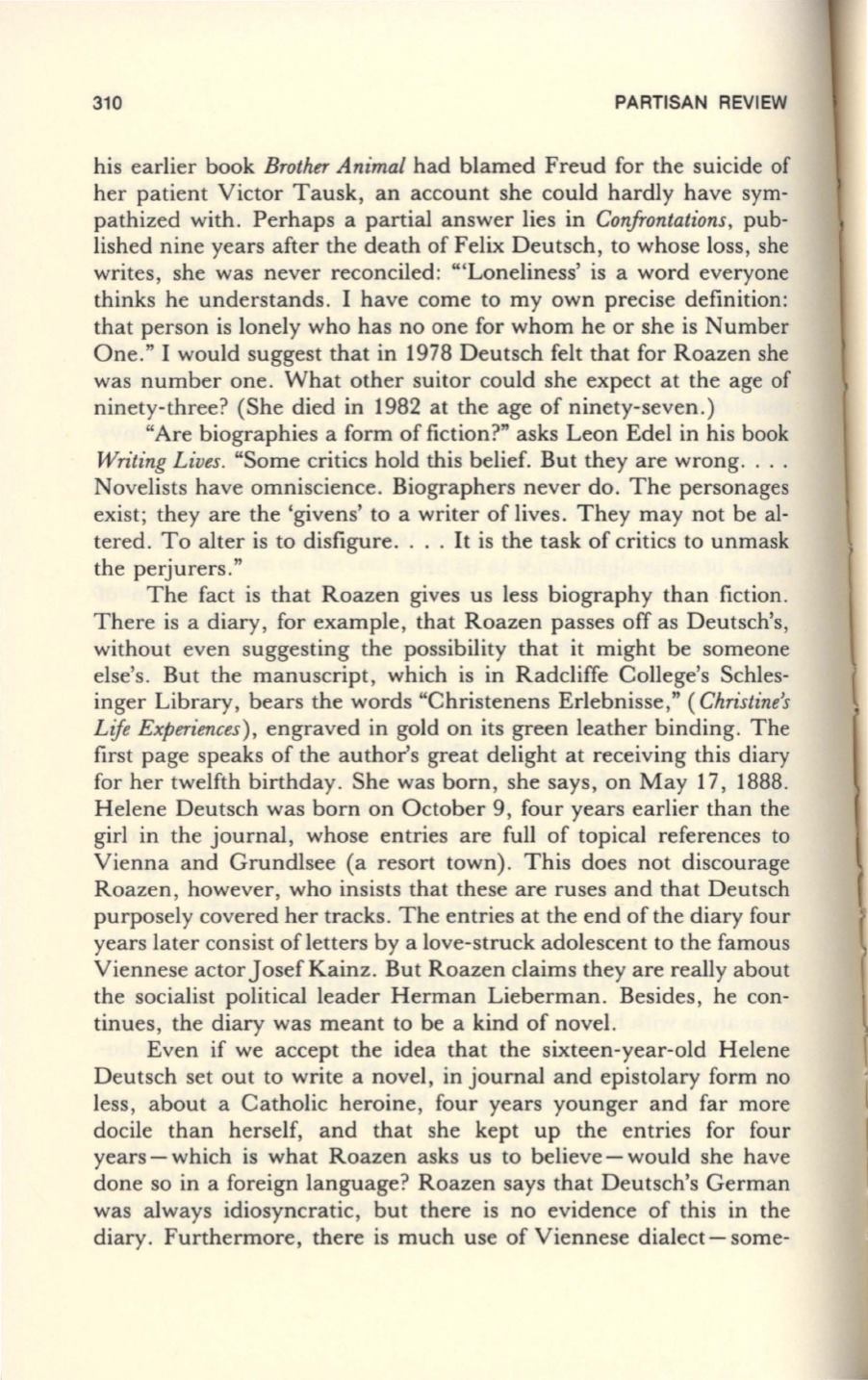
310
PARTISAN REVIEW
his earlier book
Brother Animal
had blamed Freud for the suicide of
her patient Victor Tausk, an account she could hardly have sym–
pathized with. Perhaps a partial answer lies in
Confrontations,
pub–
lished nine years after the death of Felix Deutsch, to whose loss, she
writes, she was never reconciled: '''Loneliness' is a word everyone
thinks he understands . I have come to my own precise definition:
that person is lonely who has no one for whom he or she is Number
One ." I would suggest that in 1978 Deutsch felt that for Roazen she
was number one. What other suitor could she expect at the age of
ninety-three? (She died in 1982 at the age of ninety-seven.)
"Are biographies a form of fiction?" asks Leon Edel in his book
Writing Lives.
"Some critics hold this belief. But they are wrong....
Novelists have omniscience . Biographers never do. The personages
exist; they are the 'givens' to a writer of lives. They may not be al–
tered . To alter is to disfigure.... It is the task of critics to unmask
the perjurers."
The fact is that Roazen gives us less biography than fiction .
There is a diary, for example, that Roazen passes off as Deutsch's,
without even suggesting the possibility that it might be someone
else's . But the manuscript, which is in Radcliffe College's Schles–
inger Library, bears the words "Christenens Erlebnisse," (
Christine's
Life Experiences),
engraved in gold on its green leather binding. The
first page speaks of the author's great delight at receiving this diary
for her twelfth birthday. She was born, she says, on May 17, 1888.
Helene Deutsch was born on October 9, four years earlier than the
girl in the journal, whose entries are full of topical references to
Vienna and Grundlsee (a resort town) . This does not discourage
Roazen , however, who insists that these are ruses and that Deutsch
purposely covered her tracks. The entries at the end of the diary four
years later consist of letters by a love-struck adolescent to the famous
Viennese actor Josef Kainz. But Roazen claims they are really about
the socialist political leader Herman Lieberman. Besides, he con–
tinues, the diary was meant to be a kind of novel.
Even if we accept the idea that the sixteen-year-old Helene
Deutsch set out to write a novel, in journal and epistolary form no
less, about a Catholic heroine, four years younger and far more
docile than herself, and that she kept up the entries for four
years - which is what Roazen asks us to believe - would she have
done so in a foreign language? Roazen says that Deutsch's German
was always idiosyncratic, but there is no evidence of this in the
diary. Furthermore, there is much use of Viennese dialect- some-


